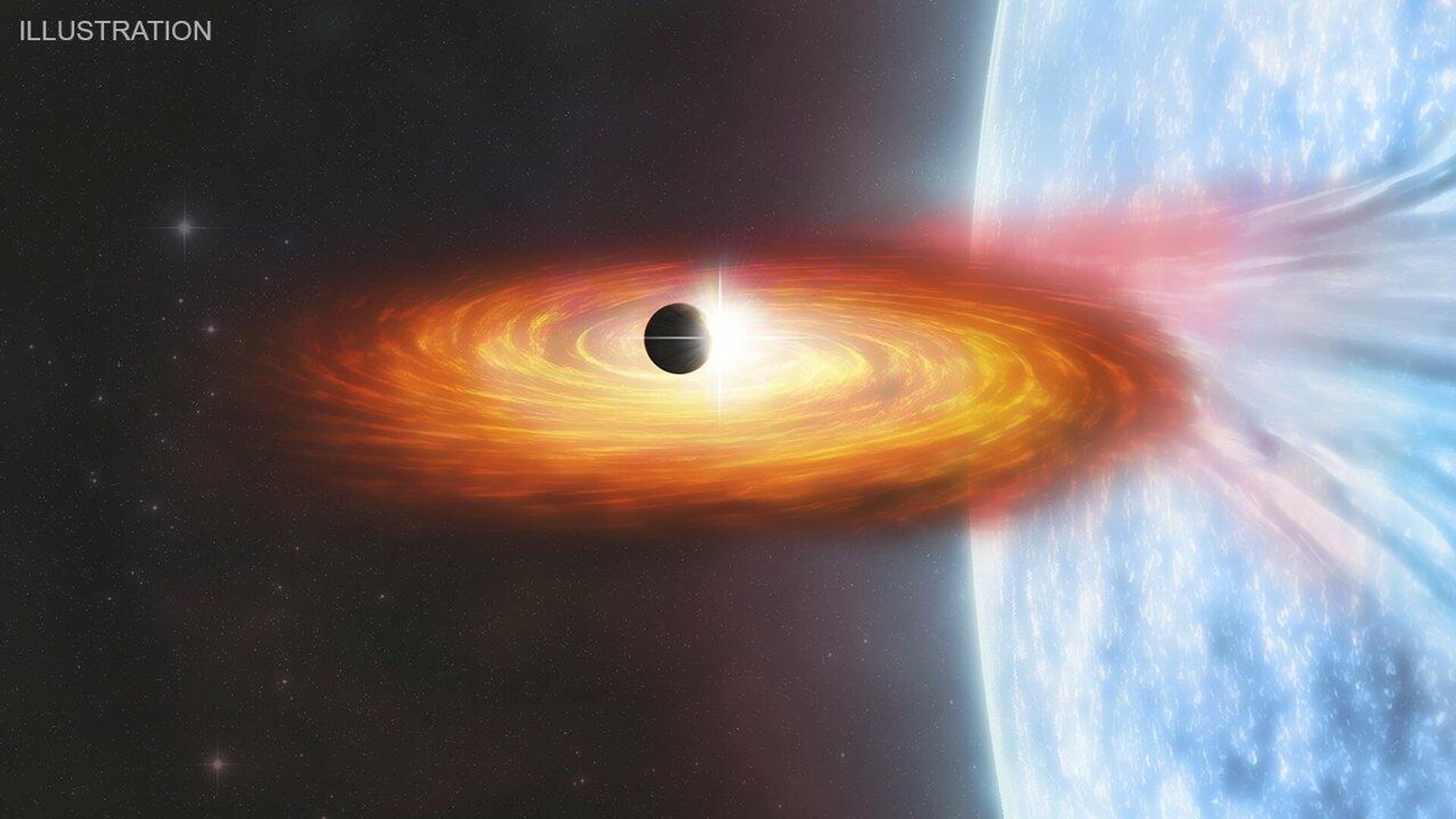https://sputnikglobe.com/20211026/scientists-spot-signs-of-first-planet-outside-milky-way-1090229147.html
Scientists Spot Signs of First Planet Outside Milky Way
Scientists Spot Signs of First Planet Outside Milky Way
Sputnik International
While there are a lot of so-called "exoplanets" - space bodies in the orbits of stars other than our Sun - in the Milky Way, not a single planet has been... 26.10.2021, Sputnik International
2021-10-26T18:57+0000
2021-10-26T18:57+0000
2022-11-03T19:34+0000
galaxy
science & tech
planet
galaxy
exoplanet
milky way
https://cdn1.img.sputnikglobe.com/img/07e5/0a/1a/1090229249_0:0:1280:720_1920x0_80_0_0_260bd10aaae4112abf6decd6916c7911.jpg
NASA's Chandra X-Ray Telescope has appeared to discover signs of what could be the first planet ever discovered beyond the Milky Way in the galaxy Messier 51, also dubbed the "Whirlpool".Located some 28 million light-years away from our galaxy, the possible planet was spotted after researchers at the Chandra Observatory spent some time detecting the dimming of X-rays from an "X-ray binary" - an object consiting of a Sun-like star orbiting around a black hole or a neutron star.It is estimated that there is a chance that the dimming could be a planet passing in front of an X-ray source around a neutron star or black hole orbiting a companion star.The scientists from the Chandra Observatory have shared a video providing a quick look at their findings, noting that it remains unclear whether their discovery is actually the first-ever extragalactical planet."While this is a tantalising study, the case of an exoplanet in M51 is not ironclad. One challenge is that the planet candidate's large orbit in M51-ULS-1 means it would not cross in front of its binary partner again for about 70 years, thwarting any attempts for a confirming observation for decades", the observatory said in a press release. "There is also the possibility that the dimming of X-rays is due to a passing cloud of gas near the M51-ULS-1, though the researchers think the data strongly favour the planet explanation".Dr Rosanne Di Stefano, one of the scientists behind the research, told the BBC that the method that was used by the astronomers is currently "the only presently implementable method to discover planetary systems in other galaxies".
milky way
Sputnik International
feedback@sputniknews.com
+74956456601
MIA „Rossiya Segodnya“
2021
News
en_EN
Sputnik International
feedback@sputniknews.com
+74956456601
MIA „Rossiya Segodnya“
Sputnik International
feedback@sputniknews.com
+74956456601
MIA „Rossiya Segodnya“
galaxy, science & tech, planet, galaxy, exoplanet, milky way
galaxy, science & tech, planet, galaxy, exoplanet, milky way
Scientists Spot Signs of First Planet Outside Milky Way
18:57 GMT 26.10.2021 (Updated: 19:34 GMT 03.11.2022) While there are a lot of so-called "exoplanets" - space bodies in the orbits of stars other than our Sun - in the Milky Way, not a single planet has been spotted outside of our home galaxy... yet.
NASA's Chandra X-Ray Telescope has
appeared to discover signs of what could be the first planet ever discovered beyond the Milky Way in the galaxy Messier 51, also dubbed the "Whirlpool".
Located some 28 million light-years away from our galaxy, the possible planet was spotted after researchers at the Chandra Observatory spent some time detecting the dimming of X-rays from an "X-ray binary" - an object consiting of a Sun-like star orbiting around a black hole or a neutron star.
It is estimated that there is a chance that the dimming could be a planet passing in front of an X-ray source around a neutron star or black hole orbiting a companion star.
The scientists from the Chandra Observatory have shared a video providing a quick look at their findings, noting that it remains unclear whether their discovery is actually the first-ever extragalactical planet.
"While this is a tantalising study, the case of an exoplanet in M51 is not ironclad. One challenge is that the planet candidate's large orbit in M51-ULS-1 means it would not cross in front of its binary partner again for about 70 years, thwarting any attempts for a confirming observation for decades", the observatory said in a press release. "There is also the possibility that the dimming of X-rays is due to a passing cloud of gas near the M51-ULS-1, though the researchers think the data strongly favour the planet explanation".
Dr Rosanne Di Stefano, one of the scientists behind the research, told the BBC that the method that was used by the astronomers is currently "the only presently implementable method to discover planetary systems in other galaxies".

